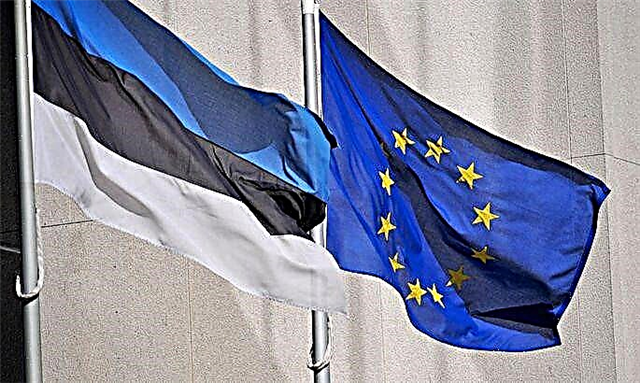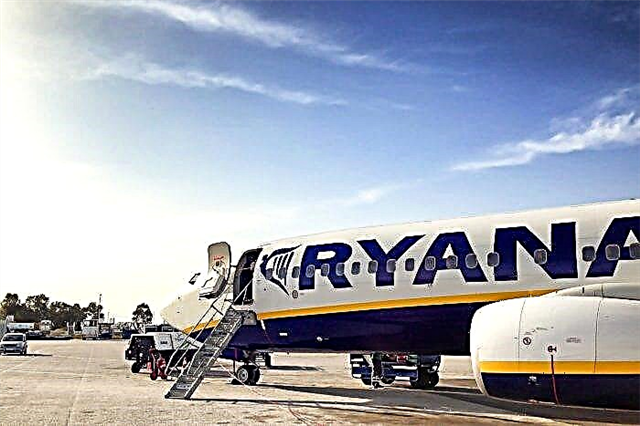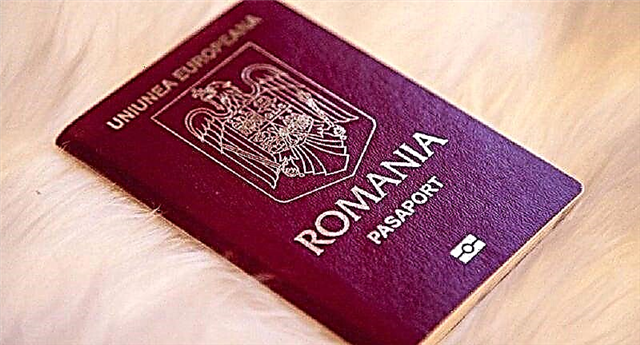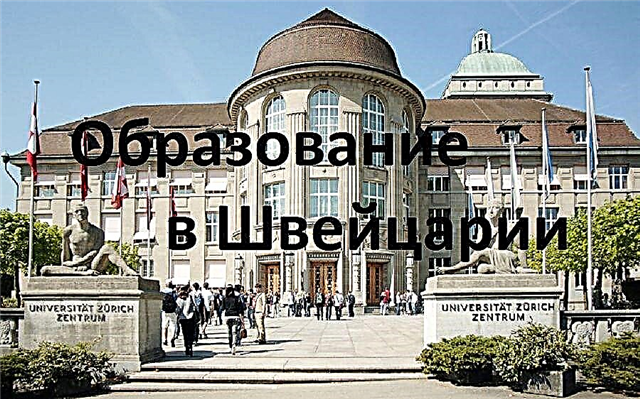Switzerland is recognized as the best country in the world and takes leading places in the ratings of livability. This also applies to education. The ability to fully develop and reveal individuality is the main principle of the local education system. Another advantage in the absence of an official language: they teach in English, German, French and Italian. A Swiss diploma opens the way to life in the country, in the European Union and America.
Higher education
Entering Switzerland is a difficult process. There are 35 higher educational institutions (12 classical) and 120 professional colleges operating in the country, which strengthens the competition.

There are three educational programs:
- Bachelor's degree - 3.5–4 years;
- Master's degree - 1-2 years;
- Doctorate - 3 years.
The study lasts 4–6 years. Consists of two semesters: summer (October – March) and winter (April – July). Specific dates are specified on the website. Admissions offices open in the spring and lectures begin in the fall.
The state has the Bologna system. The study is divided into three cycles. In each of them, you need to collect a certain number of credits, which are awarded for achievements:
- First cycle - bachelor's degree, 180 ECTS;
- Second cycle - Master's degree, 90-120 ECTS;
- The third cycle is doctoral studies, the number of credits is individual.
Students who are at least 18 years old can enroll. Most Russian graduates will have to study at home for a year or sign up for preparatory courses.
Upon admission, a foreigner takes five exams in Friborg. In the first and second year, difficult exams are taken that weed out up to 50% students. At the university level, the required number of credits is regulated (ECTS) for further translation.
A common way of admission from Russia, the CIS is to unlearn at a specialized school. They are cheaper and accept right after elementary school.

Learning programs
You May Also Like
Higher education is divided into:
- Traditional (classical) - science-oriented. These are federal research and technical institutes;
- Pedagogical - preparation for teaching in educational institutions (preschool, schools and higher);
- Applied Sciences and Arts - practice-oriented, preparing for the profession. These are mainly institutes of arts, musical institutions, etc.
Every year the number of faculties is growing, including those where they teach in foreign languages. Much time is devoted to the practical part, after completing the bachelor's degree, the path to the labor market is open, and the master's degree provides in-depth knowledge and opens access to work in large companies. Doctoral degrees are awarded to distinguished students.
Each step has specific features.
- Bachelor's degree - takes 3-4 years (depending on the specialty). Most of the lectures are compulsory. At the beginning, the applicant chooses a direction and receives a list of subjects;
- Master's degree - lasts 1–2 years. You need a bachelor's degree in the same specialty. The choice of the majority of students, paving the way to large companies;
- Doctoral (postgraduate) studies - the term is set individually. A master's degree in the same specialty is required. At the end, a scientific dissertation is written and defended.
High school students (a child from 15 years old) and graduates enter professional colleges. This is the choice of most applicants, as it is cheaper than preparatory courses and makes it easier to enroll in college. The average period is 3-4 years (or less if you pass the exams).
Conditions for admission
Requirements for applicants differ depending on the region and university. Sometimes it is necessary to pass entrance exams.
First of all, knowledge of the language in which the lectures will be conducted is required. The level of proficiency is indicated by the institution. Language examinations are held twice a year - in June and September - in Friborg. Deadlines for delivery are not limited, you can prepare and study at preparatory courses. Price - about 4600 €.
Some institutions accept other international certificates as well:
- English - IELTS and TOEFL;
- French - DALF and DELF;
- Deutsch - Goethe Zertifikat;
- Italian - CELI.
Academic confirmation is required. For a bachelor's degree, this is a certificate of secondary education (11 grades or 9 grades plus a professional college), for a master's degree - a bachelor's degree (Swiss or domestic). In the German-speaking part of Switzerland, a certificate is not enough, it takes a couple of years of study in your home country.
Sometimes for admission you need a minimum average mark in a certificate (diploma) and passing a profile exam. The exam takes place in Friborg in early autumn. These are three compulsory subjects - mathematics, history and language (in which lectures are conducted), one profile and, if desired, another foreign. You can prepare for it by taking courses that last 8 months (October – June). Conducted in German and French.
You May Also Like

List of required documents
For Russians and CIS citizens, the following documents are required:
- Application (form filled out on the website of the university);
- Confirmation of payment of the registration fee;
- Identity card (passport);
- Two color photographs 30 × 40 mm;
- Notarized copies of academic certificates (diploma, school certificate, other degrees);
- Certificate of passing the language exam (if any);
- List of educational institutions attended by the applicant.
After receiving the invitation, papers for a student visa are submitted. The average processing time is 2-6 months, so it is best to submit it as early as possible. For the winter semester, in February, and for the summer semester, in July – August.
Cost of education
The state is loyal in prices. The cost ranges from 1000–2500€ per year (for foreigners and citizens of the state).

Varies depending on the level (price per year):
- Undergraduate - ~1200€;
- Master - ~1200€;
- Postgraduate studies - ~240€.
In private universities, the price is high - up to 30,000 €... The cost of schools is about 48,000 € in year.
Is it possible to study for free
You cannot get an education in Switzerland for free. Public and private institutions are paid both for the Swiss themselves and for foreign citizens. Part of the cost can be covered by scholarships or grants.
Scholarships and grants for foreigners
The government provides three types of scholarships, the amount of which depends on the specific specialty:
- Research - for students under 35 with a master's degree;
- For doctoral studies - awarded monthly for three years;
- For postdoctoral research - awarded for a year with the possibility of extension to six months.
The educational institutions themselves issue basic and honorary scholarships. The former get everything, and the latter are given out for successes and achievements. On average, the amount of scholarships is around 1,500 € per month. It is better to check the exact figure on the university website.
Grants for the Master's degree are awarded annually by the University of Lausanne. Applicants must have excellent academic performance, a bachelor's degree in the same specialty, and be fluent (C1 – C2) in German or French. Grant applicants are awarded a scholarship of 1280 €. Applications are submitted to SASME.
Features of internship and exchange studies
A student from Russia or the CIS who has completed his first year at home can go to Switzerland on an exchange. To do this, you should apply for participation in the international exchange program or coordinate this issue with the university, if it cooperates with the state.
Main requirements:
- Excellent grades in subjects in the last semester;
- Good knowledge of French or German, availability of certificates confirming this.
On a student visa, a foreigner can work a maximum of 15 hours a week, during holidays without restrictions. The main costs (accommodation, college) are paid by the exchange program.
Internships are held in the following areas:
- Economics and Finance;
- Tourism;
- Pharmacology;
- Technological specialties and IT (for them internships are provided by large companies: Microsoft, Google, IBM).
Knowledge of English is desirable.
Living expenses
Despite the cost of government institutions, life itself is expensive in the country.
Most of the students are looking for their own accommodation. A popular option is renting an apartment, a room in a student house or dormitory. The more populated the city, the more expensive housing is. On average it costs 400-800 € per month.

On average, students spend 1500-2000 € per month housing, food, insurance, transportation, and teaching materials. It is allowed to work up to 15 hours a week, earnings up to 1600 € per month.
However, if a foreigner travels on an exchange, all costs are covered for him.
Top Universities
The best universities in Switzerland also lead international rankings. The most popular ones are:
- Eidgenössische Technische Hochschule Zürich. Offers unique faculties, ranked in the top ten of the QS world rankings in the fields of engineering and natural sciences;
- École polytechnique fédérale de Lausanne. Most foreign students and lecturers are ahead of ETH Zurich in materials science. Website: epfl.ch;
- Universität Zürich. The largest university in the state, programs of various profiles; technical, medical and humanitarian sciences. Website: uzh.ch/de.html;
- Université de Genève. An institution with many profiles, 10 faculties, the most popular direction is philosophy. Website: unige.ch;
- Universität Basel. Medicine and humanities, collaborates with research centers. Website: unibas.ch/de.

Based on the opinion of experts, it is possible to identify cities in which it is better to study one or another direction:
- Economy - St. Gallen;
- Philology - Geneva;
- Jurisprudence - Friborg, Neuchâtel, Lausanne;
- Banking - Zurich, Basil;
- Engineering - Zurich;
- Medicine - Zurich, Basile, Geneva.
Reviews about studies
“Studying in Switzerland provides a wealth of experience. People here are tolerant, no one humiliates anyone. Teaching and organization at the highest level. The cost of training corresponds to the quality. "
Deepa Mazumdar, India
“Despite the quality of educational institutions, accommodation is expensive. It is difficult for a student to find accommodation at a reasonable price, especially in cities like Zurich. "
Maarten de Kruff, Netherlands
Conclusion
Thus, Switzerland is distinguished by a quality education, but a high cost of living. With this in mind, it is recommended to find financial support. But remembering what benefits are open to a graduate of a Swiss educational institution, we can say - it's worth it.











